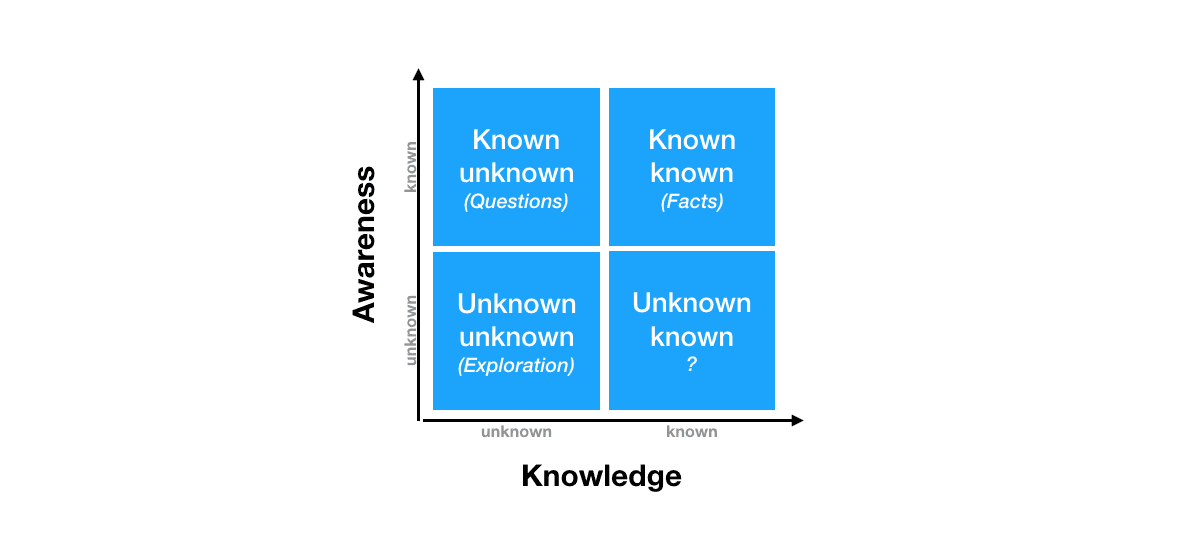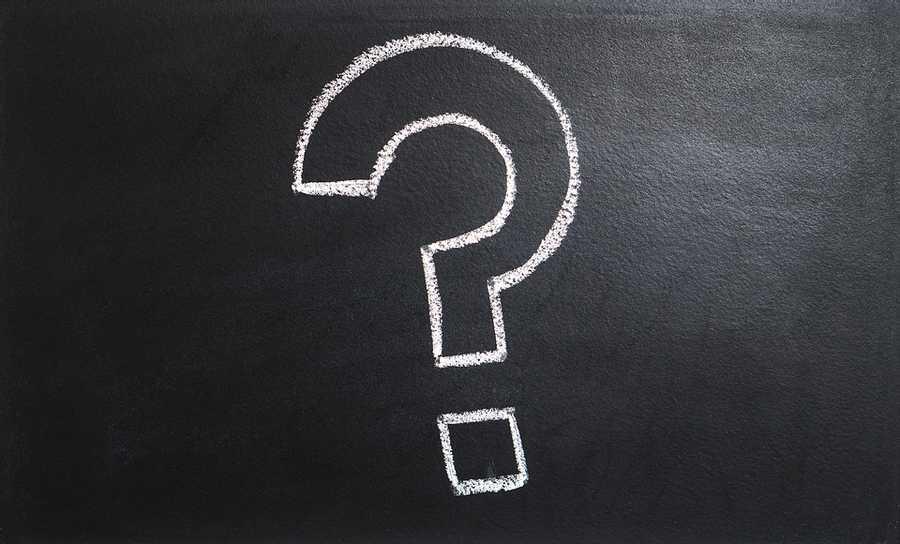The Four Types Of Information
- Known Knowns: Things we know, like how to ride a bicycle.
- Known Unknowns: Stuff we don’t understand, like quantum physics.
- Unknown Knowns: Things we know but never realized that we knew it. Most of it comes naturally to us, like parenting or crying.
- Unknown Unknowns: This is the information we have no clue about, and we don’t even know the fact that we don’t have a clue about this.
Most people have information in all these four types, making each brain a combination of a labyrinth and a jigsaw puzzle.
2.31K
12.6K reads
CURATED FROM
IDEAS CURATED BY
The idea is part of this collection:
Learn more about personaldevelopment with this collection
How to strengthen your willpower
How to overcome temptation and distractions
The role of motivation in willpower
Related collections
Similar ideas to The Four Types Of Information
Known unknowns and unknown unknowns
- Known unknowns are the things we know we don’t know about (space travel, brain surgery, etc.) We can learn anytime about them but we’re not really expected to know about them.
- Unknown unknowns are the things we think we should know about, but we ...
Types of people
Category 1: Losers
People who always see negative in everything and put in the least amount of effort or no effort at all. They are least bothered about what is happening around them. They will only crib and complain about how the world is. They will say someth...
Read & Learn
20x Faster
without
deepstash
with
deepstash
with
deepstash
Personalized microlearning
—
100+ Learning Journeys
—
Access to 200,000+ ideas
—
Access to the mobile app
—
Unlimited idea saving
—
—
Unlimited history
—
—
Unlimited listening to ideas
—
—
Downloading & offline access
—
—
Supercharge your mind with one idea per day
Enter your email and spend 1 minute every day to learn something new.
I agree to receive email updates


